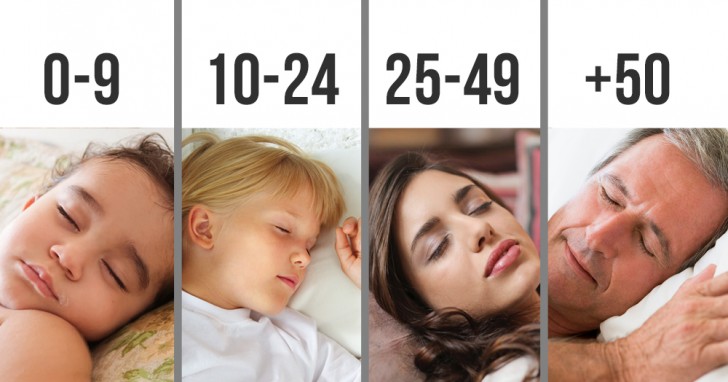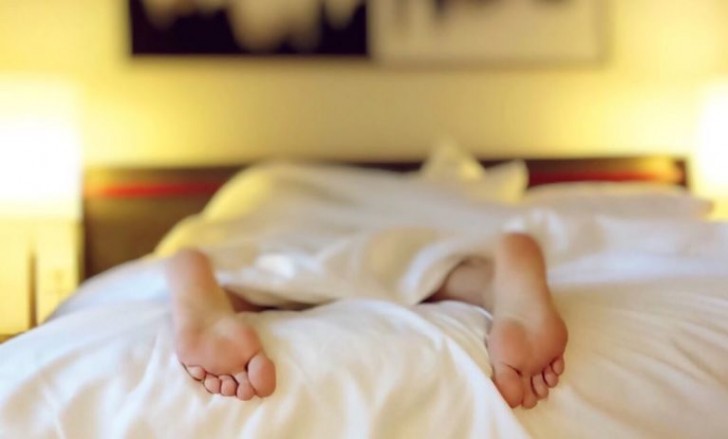How many hours we should sleep each night is based on age

A good night's sleep is one of the simplest pleasures in life but also a necessity in order to stay healthy.
Today's rhythms, stress, and too much technology make it really difficult to get enough rest and sleep. However, it is not only the number of hours spent in bed that is important but also the quality of sleep.
Moreover, an adult feels the need to sleep a different number of hours than a child or an adolescent. Here are the necessary hours of sleep based on one's age.

- Infants from 0 to 3 months. The ideal would be to sleep between 14 and 17 hours or in any case between 11 and 13 hours, never more than 18 hours.
- Children aged 4 to 11 months. The threshold not to be exceeded is between 16 and 18 hours a day, while the perfect average is between 12 and 15 hours, but it is ok even between 11 and 13 hours.
- Children between 1 and 2 years old. The indicated amount of hours to sleep is between 11 and 14 hours, not less than 9 and not more than 15 hours.
- Children from 3 to 5 years. The right dose of sleep is between 10 and 13 hours a day, the important thing is not to go beyond 12 hours or under 7 hours.

- Children between 6 and 13 years old. In school age, the best average is between 8 and 11 hours of sleep.
- Teenagers between 14 and 17 years old. For teenagers, sleeping between 8 and 10 hours is the right amount.
- Young adults between 18 and 25 years old. The optimal average, for young adults, is between 7 and 9 hours.
- Adults between 26 and 64 years old. The top would be to sleep 7 to 9 hours, although it is not always easy to maintain this average.
- Adults over 65 years. To stay in shape even in old age, it is necessary to sleep at least 7-8 hours.

To guarantee a better quality of rest it is advisable not to consume too much caffeine and stimulating foods and drinks, in general. Nicotine is also the enemy of sleep because a smoking addiction can wake you up during the night.
Other suggestions are: listening to soft music, doing relaxation exercises, sleeping in the dark and avoiding naps that are too long during the day. Regularly doing physical activity, having a regular routine and eating light meals at dinner are all good sleep-inducing habits. A hot shower, a comfortable bed, silence, and zero electronic light sources all can contribute to creating an ideal atmosphere to fall asleep.





